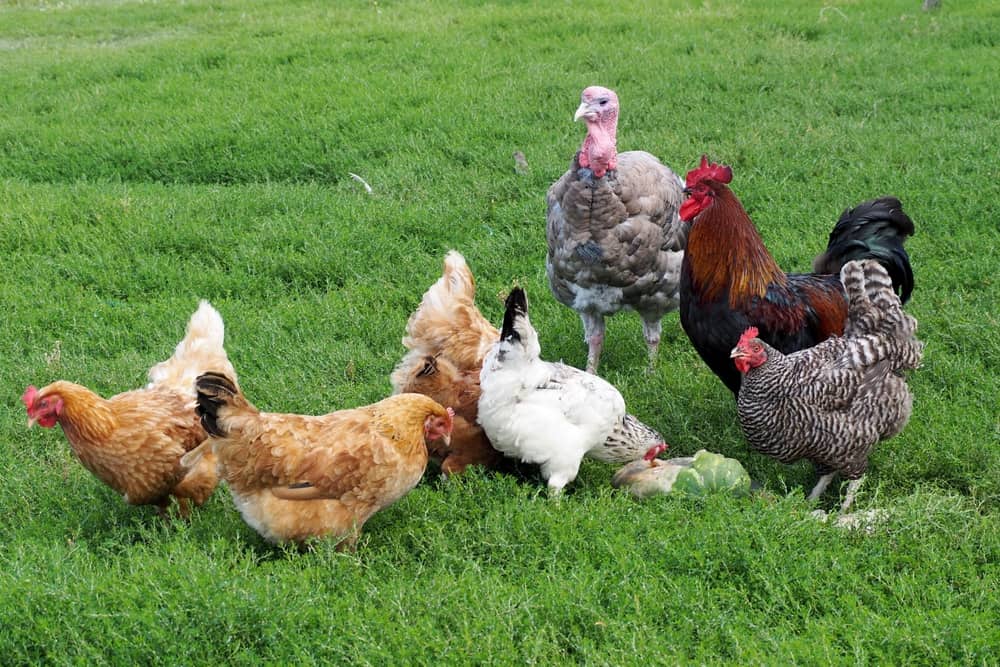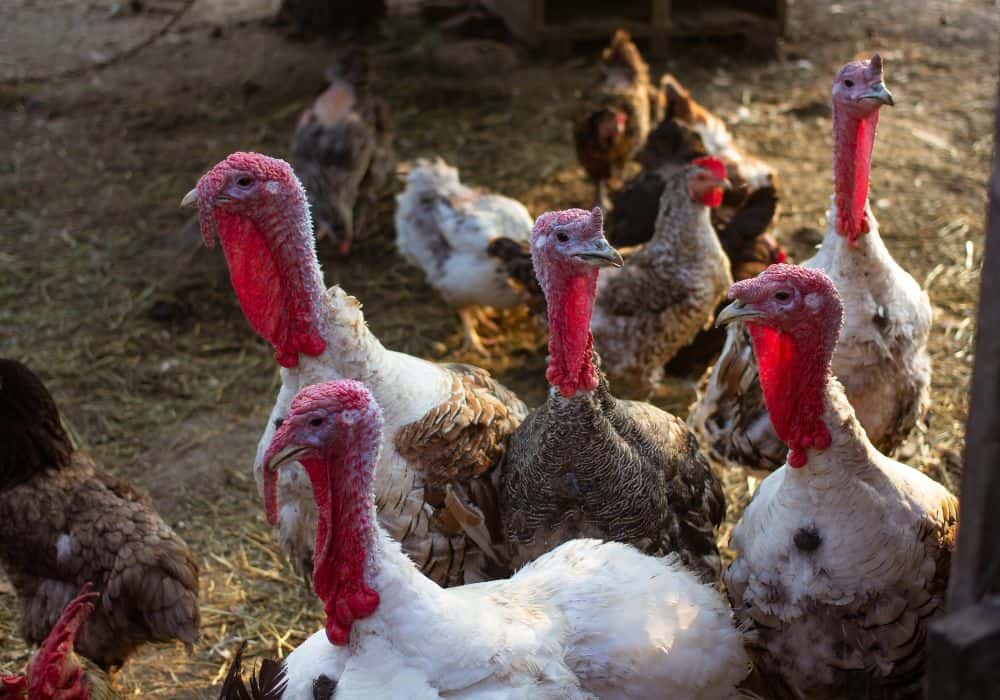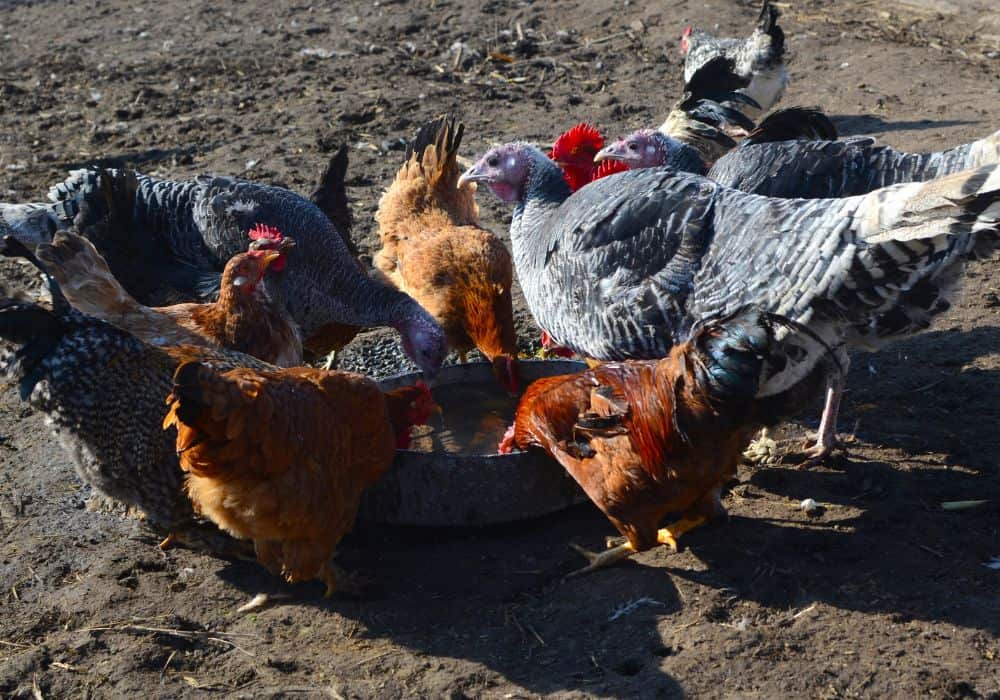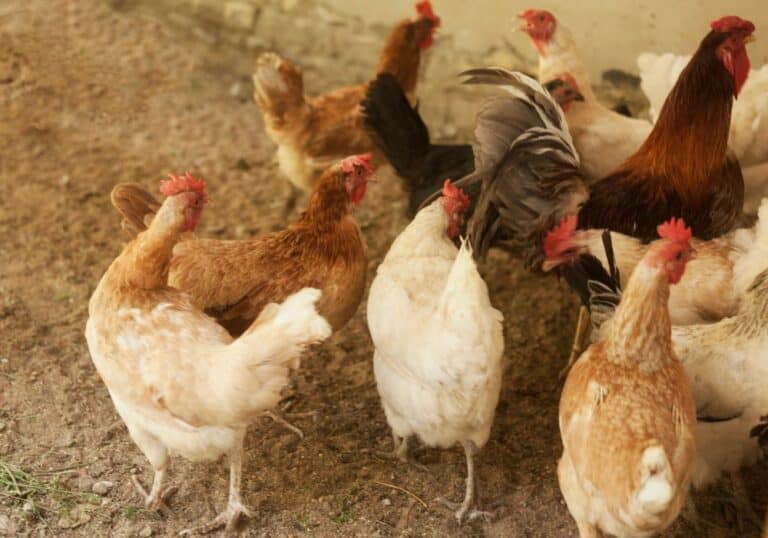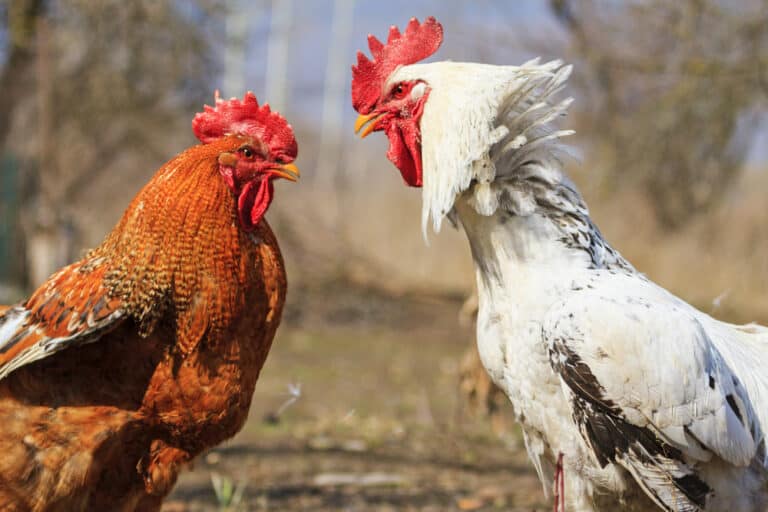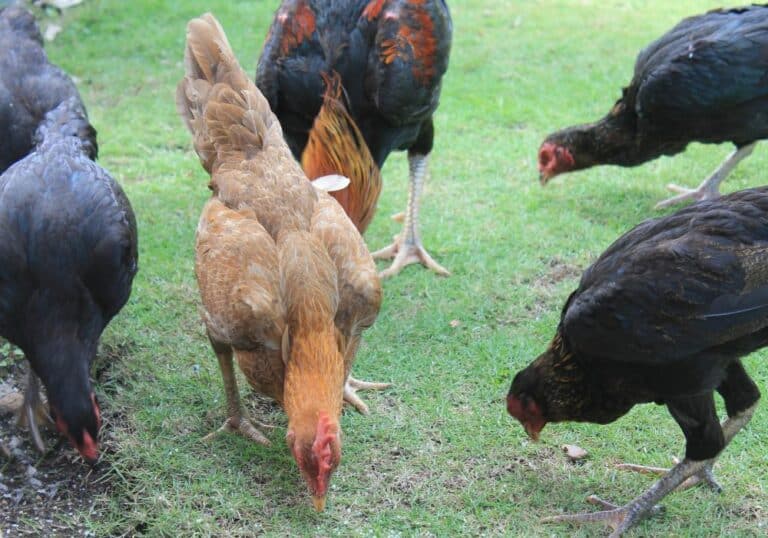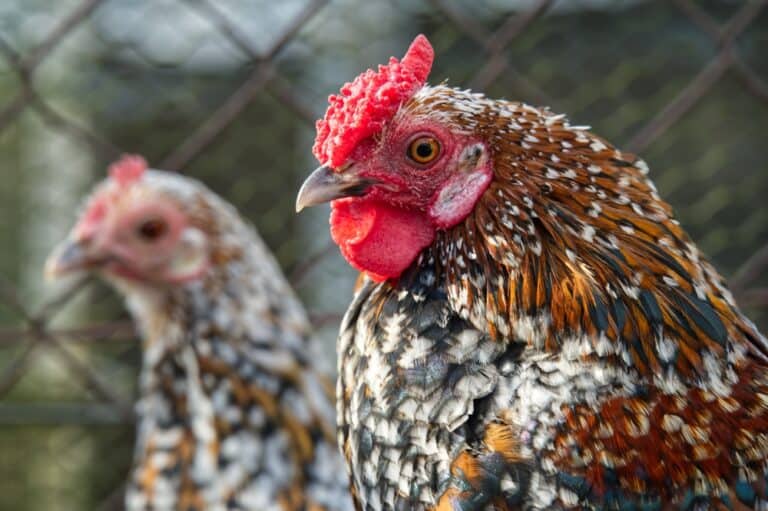Are you a chicken keeper and are wondering whether you can raise turkeys with chickens? Or maybe you already have turkeys and want to add chickens into your coop for more egg and meat variety. But will these two types of birds get along in the same coop or would it spell a disaster?
The good news is that it is possible to raise turkeys with chickens. However, there are several things you need to consider before you go ahead and mix these two birds in your flock. Continue reading to find out what you need to know before you raise turkeys with chickens.
Raising Turkeys With Chickens Can be Beneficial
Not only is it possible to raise the two birds in the same flock, but there are also benefits to mixing them in your backyard coop. Here is how you could benefit from having both chickens and turkeys.
Turkeys Are Good at Sensing Danger
While there are some chicken breeds that are very good at sensing danger, not all of them are. Turkeys, on the other hand, are good at sensing predators and they will make a lot of noise when they feel threatened. This will alert the whole flock to a potential danger and they can run out of harm’s way.
Turkeys Can Stop Your Chickens From Fighting
Turkeys are very calm birds, unless they sense danger, and are natural peacekeepers in a mixed flock. People who keep both types of birds say that turkeys can actually mediate between chickens and stop them from fighting.
Turkeys Can Mother Chicks From Your Chickens
Some breeds of chicken make great mothers, others not so much. There are some chicken breeds that are terrible mothers and will not incubate their fertile eggs however much you would want them to.
If you have turkeys in your flock, turkey hens can incubate chicken eggs and become surrogate mothers to baby chicks your chickens will not look after. Young chicks need guidance and they can learn it from a turkey surrogate as well as they would from a chicken mother.
You Get a Variety of Eggs
While they might not be on most people’s menus, turkey eggs are edible eggs just like chickens. They just don’t lay as often, which is why for commercial growers, it wouldn’t be profitable to keep them for purely egg-laying purposes. But when you have chickens and turkeys in a flock, you get the benefit of a variety of eggs.
Turkeys and Chickens Prefer to be in a Flock
Both chickens and turkeys are social birds and would not enjoy being the sole bird. They would much rather be part of a large flock. As we mentioned above, turkeys can bring calm into a quarreling flock of chickens and the breeds will socialize with each other.
What You Need to Look Out For
Even though chickens and turkeys will be perfectly happy raised together, there are some risks you need to be aware of. Knowing the risks can help you ensure that you are raising a happy and healthy mixed flock of birds.
Histomoniasis or Blackhead Disease
This is the biggest risk you face when keeping chickens and turkeys in the same coop. The blackhead disease that affects turkeys is caused by a parasite called Histomonas meleagridis and usually kills from 80% up to 100% of the infected turkeys.
The parasites are hard to get rid of since they can survey underground for up to three years. Even once you have isolated the sick birds from the healthy ones or got rid of the disease altogether, there is still a chance that it is living underground and will surface again later.
Chickens can get blackhead disease but often will show no symptoms. However, even symptomless chickens can be carriers and spread the disease to your turkeys who have a very low survival rate. This is why some people will advise against mixing turkeys and chickens in the same flock.
Preventing Blackhead Disease
There are some measures you can take to prevent the spread of blackhead disease in your flock. The first is to only purchase chickens and turkeys from reputable breeders. They will have taken precautions to prevent the disease in their flock.
However, since the disease may not show at all in chickens or in turkeys at early stages, it is advisable to quarantine your new birds before you introduce them to the rest of your flock.
If you have visited other farms or poultry shows, disinfect your clothing and boots in case of earthworms or cecal worms that are hosts for the disease. Check your flock regularly for symptoms of disease and keep their living environment clean. Many chicken and turkey keepers will also deworm their flocks regularly.
Issues With Brooding
When you have broody hens, they tend to get more aggressive than usual and may become irritated by any turkey getting too close to their cluster of eggs. In the worst case, broody chickens will peck and even trample on the turkeys, especially the baby turkeys, which can weaken the immune system.
Turkeys, altogether a calm species of bird, are more gentle brooders. However, there is the danger that a broody turkey could accidentally hurt the chicken eggs or the chicks because of their large size as well as clumsiness. Another reason why you need to ensure there is plenty of space for every bird in your flock.
Lack of Space
You should only consider mixing chickens and turkeys if you can provide them with the space they need. As well as the serious problems with the possible spread of blackhead disease and eggs and chicks getting hurt, there are additional issues that the lack of adequate space can cause.
If your coop is too crowded, it will get dirty very quickly, which will aid the spread of various diseases, not just blackhead disease. The birds can become stressed, which will affect their egg production. Lack of space will often also result in your hens fighting more, which can lead them to injure or even kill each other.
Coop Set Up
The key to preventing issues that may arise in a mixed flock is to set the coop correctly, ensuring that the birds in your flock have plenty of space. While both chickens and turkeys are sociable birds, they also like to have their own space.
Because turkeys are much larger birds than chickens, they will need a lot more space. While your chickens need around four square feet of outside space each, your turkeys will need around ten square feet each.
For roosting, your chickens will need between ten and twelve inches each, but for turkeys, you need to think much bigger again. They will be happy with around ten square feet each indoors, too. Your turkeys will also need wider roosting perches that can accommodate their larger feet.
You need to provide separate nesting boxes for your chickens and turkey. A standard-size nest box, which is 12 x 12 inches, will be perfect for most chicken breeds. Your turkeys need bigger nest boxes. The recommended size is 18 x 18 inches.
Roosters in Your Flock
Some people who have roosters in their flock keep the turkeys and hens separately at night. This is because the roosters can become protective of their hens, especially when they are laying eggs. Others will simply keep a close eye on the rooster until they know how they behave around the turkeys.
What to Feed Your Chickens and Turkeys
If you are used to raising chickens, you will know that a layer feed for hens contains around 16% protein. Your turkeys will need higher-protein feed to be happy and healthy. You should give them feed that contains 26% of protein, which is a lot more than your chickens need. Too much protein can cause your chickens’ health issues.
You have two options here. You can either feed the birds separately or you can feed them all the chicken feed. The downside of that is that your turkeys may not grow as quickly or as big as they would on feed higher in protein.
Which option you choose largely depends on what you want to do with your turkeys. Are you raising them for meat or as pets and egg producers? If you are raising turkeys for meat, then it is best to give them a high-protein diet while egg producers and pet turkeys are fine with the lower protein content in chicken feed.
Conclusion
If you are thinking of having a mixed flock of chickens and turkeys, there is no reason you should not do it. Chickens and turkeys can get on well in the same coop as long as you provide them with plenty of space. You also need to take precautions to avoid any issues with your flock, such as the blackhead disease.
Hopefully, you now have a good understanding of keeping chickens and turkeys in the same flock. If there is anything you would like to ask about a mixed flock, you can write your questions in the comments box.

